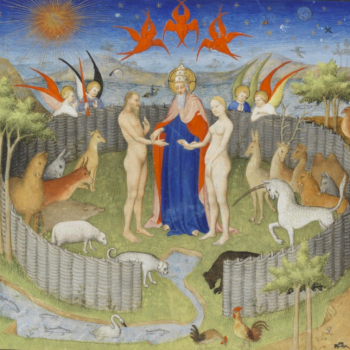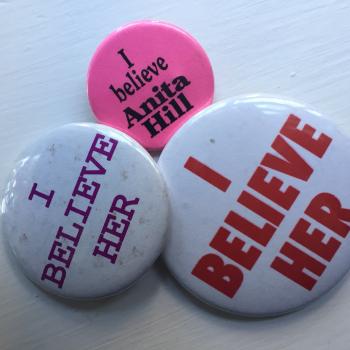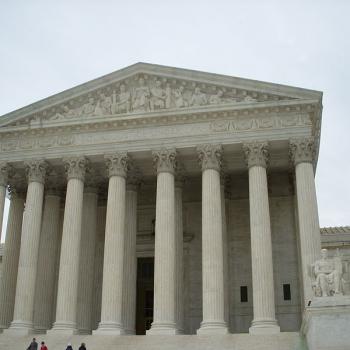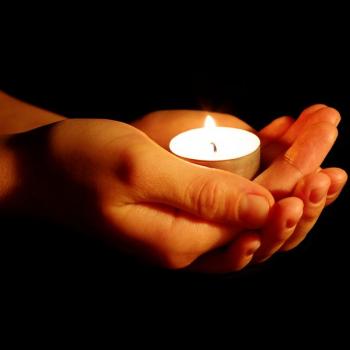Dear Casey,
I agree that Yancy argues that denial of the racist self is one of the issue that white people face when it comes to the discussion of race. I do believe that white people are afraid to be called racist and do not want to leave their bubble to have these hard conversations. But I also think it is because they do not want to leave their place of privilege. Another quote by James Cone from Black Theology & Black Power that I think really explains this well is
When Blacks are confronted by whites who want to help with the “black problem” by giving advice on the appropriate response, whites should not be surprised if blacks respond, “We wish to plead our own case. Too long have others spoken for us.” I am not prepared to talk seriously with a man who essentially says, “I sit on a man’s back, choking him and making him carry me, and yet assure myself and others that I am very sorry for him and wish to lighten his load by all possible means – except getting off his back.”
I think this is evident even now because to destroy racism we have to destroy the system that was built upon Black people’s backs and to destroy that system is to destroy everything that white people hold near and dear to their heart. To destroy racism, white people have to get off the back of Black people and I do not think that many want to do that.
I agree that the fight to end racism should be a unified fight but from what I see, it is not happening. It is sad that this is happening but Black people cannot wait for white people to enlist in the fight for equality.
It deeply troubles me that you say white people do not listen to other white people when they discuss race. For me, if allies can’t convince their friends to listen to Black people and our struggle then what is their purpose?
This is why I do not think white people are needed to affect this change. I have seen Black people affect change in our society and culture especially when it comes to Black Lives Matter and the issue of police brutality. While it is still a problem, it has been brought to the light and has been addressed repeatedly. This is the issue that I am having a hard time wrapping my head around.
I think the best mode of action for Elon’s issue of racism is getting white allies to talk to white people about the issue of racism. If white people won’t listen to each other, I don’t think they will listen to Black people. I also think white allies have to find their place and contribute to the fight for equality in some form. I think there has to be a huge change in the way we think about racism and fixing the issue. It is more than just going to an event and understanding Black people’s struggle. It is about reaching the white people who feel like racism is not alive and well or that they are inherently racist due to our society. I think the way to affect change is getting them to change their ways. This is what I think Black people need from white allies in this era that we are living in.
Dear Chris,
Your comment about what use are white allies if they can’t convince other white people about racism really resonated with me. A little painful to hear of course, but true. The more I think about it, the more I think that’s probably part of the reason I burned out in the first place. If I couldn’t even convince white people that racism was real and rampant—even when those people were my friends and family—what help was I in this fight? Why show up when there’s nothing I could do? It certainly wasn’t a productive mindset. It was one that made me a passive ally for a long time, which of course isn’t being much of an ally at all.
That being said, through all of the important questions you’ve asked and thoughtful comments you’ve made throughout this dialogue, the one that struck me most was what you said about no one teaching white people to be allies. Maybe that’s been part of my problem all along, and the problem of white allies everywhere. It’s not that we don’t have the capacity to convince other white people about racism, but perhaps more that we don’t know how.
If that’s true, then maybe the most effective way we as white people can promote change is to have white allies stop focusing so much on ways we can directly support Black people who—like you pointed out—have the power to address these problems without white intervention. Instead, maybe it’s time to direct some attention towards the issue of how we can support each other.
I’m sure there are white allies somewhere, and probably even at Elon, who have found effective ways of taking up the issue of race with other white people. But the problem is, I don’t even know where I’d start in trying to seek those people out and ask them questions. We don’t have a lot of platforms for them to share their insights and success stories. Plus at this point white allies are so focused on putting their efforts directly into their antiracist actions that a lot of them, I’d guess, don’t even think about the fact that they may be able to have a broader impact by taking some time away to educate other white allies.
If we could have online resources, workshops, forums for communication, or any other way of spreading information in a community of white allies, then we may be able to learn from each other enough to improve all our successes. “Diversity training” is far from enough. Almost all it does is talk about the problems when we need to be talking about methods. I say methods because I don’t think talking about solutions is all that helpful either right now. “Solution” implies that there are straightforward and formulaic ways of ending a problem, which sets people up for burn-out when they come in and find that things are far from that simple, causing them to grow disheartened and hopeless.
I think the conversation we need to be having in the white ally community is about the process of how to get to effective race education—a pedagogy for teaching other whites about racism.
At Elon, maybe that means opening up more events catered towards white allies. Trainings for white allies would be great, but even just open conversations where we could share frustrations and insights. If we could find the interest maybe we could even start a student organization that, in association with Elon’s Black population, works specifically on ways whites can educate other white students about race and racism.
Thanks for having this dialogue with me, Chris. I’ve learned a lot from talking to you and enjoyed hearing all your thoughts and insights. It’s also helped renew my motivation, and maybe even a small sense of hope. It’s been a long time since I’ve felt like I’ve seen a clear pathway forward, but seeking out and learning from other allies feels like a promising way to progress. I wish you all the best of luck in this fight, and in any others you take on.
In solidarity,
Casey
Dear Casey,
Thank you so much for being open and accepting of my point of view of racism and the issue of racism at Elon. Thank you for not being dismissive and not using denial to escape certain realities even though I know it can be the easier route. Thank you for also allowing me to open up to you and for you opening up to me, I think that made this conversation a lot more organic. But most importantly, thank you for opening my eyes and educating me as well. I’m sure that I have received just as much knowledge and insights from this conversation with you that you did from me. I hope we can continue this conversation of “how to be an effective white ally” and move it to a larger scale. I also wish you the best of luck, not only in this fight but also in answering the question left unanswered in the conversation.
All the best,
Chris
This spring I am teaching two classes that deal with the issues of race and racism. One is “Racism and Black Theology” and the other is “Poverty and Social Justice.” I invited one student from each class to engage in a dialogue about race and racism at Elon University while drawing on their learnings from each course. This is the sixth and final post in a series of posts that will chronicle that dialogue. I hope their conversation will prompt readers to also think more critically about issues of race and racism. And I invite readers to engage their ideas in the comments section.
The authors of this dialogue are Chris Tarpley (Racism and Black Theology) and Casey Morrison (Poverty and Social Justice).
















